Nira Park, the producer of Shaun Of The Dead and Hot Fuzz, talks to Stars Of Tomorrow Anna Higgs and Gavin Humphries about the importance of talent relationships, finding a good line producer and how to get more money from a financier
Gavin Humphries: You started out in television. Were you always aiming to be a film producer'
Nira Park: I was always passionate about television comedy and really wanted to work in that area. After the second series of Spaced for Channel 4, we talked for a long time about developing a third series but then [Spaced director] Edgar Wright and [co-writer and star] Simon Pegg started toying with the idea of developing a zombie movie. Mainly I think it was because they had had so much fun shooting the three-minute Resident Evil hallucination sequence in Spaced where Simon's character Tim gets to blow the head of several zombies with a shotgun and they wanted to repeat the experience.
We pitched quite a loose idea to FilmFour and they went for it immediately. So all of a sudden we were developing a film. I didn't set out to be a film producer it was just a natural progression. But I am still passionate about television as well. And I hope to continue to do both.
Humphries: Do you find it hard to balance television and film, especially as the films have been successful'
Park: What is hard is that now we have a much bigger development slate and we are juggling far more projects. But in terms of the success we have had - it makes things easier as talent we are keen to work with are more open to developing projects with us - as are financiers.
Anna Higgs: One of the key differences we've discovered is that you are able to keep rights with television and try to keep value in your company while the reverse is true with features. What kind of advice would you give to people like us starting out about how to keep our company sustainable'
Park: We wouldn't have been able to survive as a company if we hadn't developed and produced television. Even now the television development and production is what pays our rent. Television development pays far more than film development and if your projects go into production you not only get a substantial production fee but, because you are able to retain rights, you can see real money from international sales, DVD sales, etc. I don't know how you can survive as a producer just working in film. Unless you have a trust fund - which I don't!
Higgs: As the scale of your projects increases do you find there are bigger expectations on you to get good box-office returns' Does that constrain you in what you are trying to do creatively'
Park: We try to set our own parameters, make the movies we want to make and not to be restricted by other people's expectations. Hot Fuzz was obviously a far more ambitious script and the budget was nearly double that of Shaun Of The Dead - which was still very tight - but we are lucky because we have a great relationship with Working Title, who really get what we want to do and give us the freedom to make the films in the way we want to make them.
Higgs: How are you developing relationships with Hollywood' Are you looking to work there more'
Park: People in Hollywood search you out in a way that they perhaps don't here. If you have made a hit, everyone wants to know you there. I was quite surprised that after Shaun people in the UK didn't come knocking on our door. Maybe it's because they thought we would only be interested in self-generated projects, in doing our own thing.
In America the opposite is true, you've suddenly been sent a million scripts and had meetings with people you never dreamed of meeting - and they call you! We have developed a few really good relationships out there and do have several projects in development with Universal and Marvel but we are passionate about continuing to work in the UK.
We work in a kind of cottage-industry way, we've been working with the same crew for years, we're a family: this and the fact that we have such a supportive relationship with Working Title makes us nervous about working elsewhere. Having said that, we will be shooting a film in Toronto for Universal early next year and that will be an interesting experience.
Humphries: Do they interfere more'
Park: The bigger a film gets, the more money they spend and the more nervous they are that if it doesn't do well then they are going to lose their job. So they do get more involved - which can be construed as interfering
When we made Shaun, we developed it at FilmFour because it felt like our spiritual home after making Spaced with Channel Four. It was just about to happen and FilmFour under Paul Webster and Jim Wilson collapsed and the film went into turnaround. Then absolutely no one wanted to make it partly because it was a difficult script to get.
I think also there was a bit of snobbery because we came from television. I had worked in TV for about ten years so I knew who to call if I wanted to get something off the ground. Suddenly I was faced with a whole new set of people. And I made this list of film financiers and I thought, I don't know anyone on this list. It was so frightening.
But we made the decision that if we were to really get the film off the ground we had to take absolutely no work which would mean going into debt, which we did, and we could not take no for an answer. But pretty much everyone said no. When you are in this situation as a producer the question always is: at what point do you give up' But because FilmFour had believed in the script, we knew it had to be made and we refused to give up.
A year later Working Title offered to fully finance it. We thought they were going to take the project away from us and I remember them asking 'Who is Nick Frost' Why should he play this part when we could perhaps cast a big American actor'' And we thought 'Oh God are we doing the right thing working with them'' But very early on they put their trust in us allowed us to make the film in the way we wanted to make it.
Humphries: Is the dividing line between film and television more blurred now or are there still elements of snobbery'
Park: It can be hard to convince a financier to cast an actor who may be a star on TV but hasn't appeared in films. Given that in this country the majority of the work for actors is on television - especially if you are a comedy performer - this can be frustrating.
Higgs: How have you structured your company so that that process is sustainable but also protected'
Park: You have to make sure that you don't put all your eggs in one basket - you can't survive by developing just one thing. But you also have to make sure you are not developing so many things that you can't spend the time needed to really dedicate yourself to getting projects off the ground. Development is a long process - always. The most important thing is to keep your overheads as low as possible. By doing this you are able to be your own boss and maintain your independence.
Humphries: What is your secret to making relationships with your directors and writers work'
Park: Without talent relationships, a producer is nothing. If you can develop a few really good relationships with writers and directors and maintain them that is how you will continue to work. I've been lucky. Edgar and I got on the minute we met and I think we both knew it would be a lasting relationship. We work in very much the same way and we have huge respect for each other. We're workaholics, we hate to compromise, we hate to take no for an answer, we have similar tastes.
After working together for ten years we have a shorthand - I just know what he wants now without having to ask. With Ringan Ledwidge with whom I made Gone in Australia last year, we just clicked immediately. If you can find that with someone, then it is a proper collaborative experience.
Higgs: What's the most important thing a producer should do when working with a director'
Park: Remain positive. Never allow them to think that the film isn't going to happen, never let them know that things are falling apart. Always try to find a way to realise their vision. Don't just say 'no' if you think something isn't possible, find a solution and offer it up. Find a good line producer because a producer is nothing without one. Always work with a crew that absolutely get the project and want to be there. It is like putting together the perfect dinner party. It never is the perfect dinner party, there's always one person who annoys everyone else, but do your best. And as the producer you are the host or hostess of that dinner party.
Work hard to get the best out of people. Be on set as much as you possibly can. Don't just turn up for the last five minutes. The crew will start to resent you for that. If you're not there getting freezing cold with everyone else, then why should they give you 30 minutes of overtime'
Humphries: What's the biggest challenge you've been faced with so far while filming'
Park: We had massive problems on Hot Fuzz because we were shooting during four weeks of torrential rain. We had scheduled the fete sequence which needed the whole cast of over 50 people and hundreds of extras and it poured and poured and it wasn't rain you could camouflage. And we were right at the end of our shoot and we were about to lose the cast and accommodation because another film was coming into the location so all hotels had been pre-booked. It was a logistical nightmare and we needed desperately needed additional funding.
What was quite good was that the day it rained the most was the day [Working Title head] Eric Fellner visited. He could see how bad it was. I thought, Yes! You can see how hard it is! We got the money we needed.
A similar thing happened during the filming of Gone. Eric flew all the way to the Outback in Australia to visit us. We were filming in the middle of nowhere, it was boiling hot and there was an invasion of flies. We were all wearing beekeeper's outfits. All he said was 'Oh my God, this is just like hell. What do you need to make things easier''
Higgs: Are you always satisfied with how a project turns out' Comedy especially is difficult to get right.
Park: I think I'm quite good at recognising what will work from what's on the page. I also knew exactly what Edgar and Simon wanted to do with both films. And also because often they're writing for a particular actor, it's much easier to hear the voices. The only time I had doubts was when I joined a project which had already been developed by someone else and it was hard to lose the things in the screenplay that we knew didn't work right from the start. That was a real lesson.
Humphries: Where do you find talent and are you optimistic for the future'
Park: From film schools, shorts and obviously television. We try and watch as many short films as possible and we're good at reading pretty much everything that comes into the office. And agents - developing relationships with agents is the most important thing you can do. Make monthly calls to find out who is out there. Read as much as you can, watch as much as you can, meet as many people as you can. There is a huge amount of really exciting new talent out there. Not telling you who - you have to go and find it.





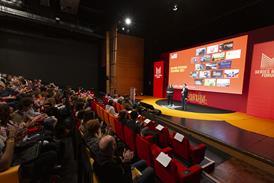
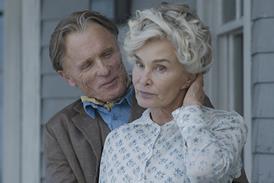
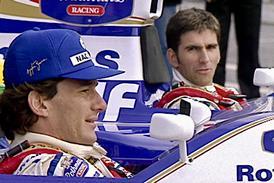




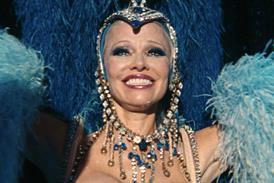



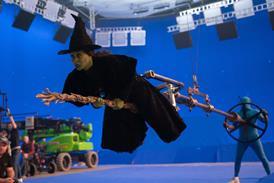
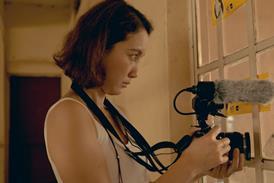

No comments yet